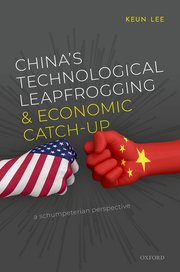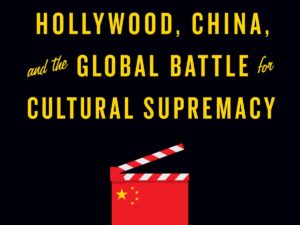The emergence of China as a regional power in the Asia Pacific has largely negative implications for democratization prospects in the region, according to a new report from the Asia Democracy Network (above). Of particular concern is the effect of a strong and politically assertive China on the prognosis for a nascent democratic community in East Asia, say the authors of “China’s Rise under the Lens: Human Rights and Democracy at Risk,” which addresses…
- Chinese interference in the Asia Pacific and its impact in weakening efforts to democratize, noting that the democratic institutions of countries in the region remain largely weak therefore, susceptible to the negative effects of Chinese political interference;
- the nature of China’s economic rise and how it uses its economic weight which has negative implications on efforts to promote democratic values;
- how China’s actions translate into dangerous pivots that have plunged the region into a less secure space for dissent among civil society and other pro-democracy actors.
 China’s apparent faith in its own historic destiny may be misplaced. Xi Jinping’s authoritarian writ may prove to be a sign not of confidence but of insecurity, Gerard Baker writes for The Wall Street Journal:
China’s apparent faith in its own historic destiny may be misplaced. Xi Jinping’s authoritarian writ may prove to be a sign not of confidence but of insecurity, Gerard Baker writes for The Wall Street Journal:
Its officially accounted economic performance masks deep flaws—demographic trends similar to Russia’s, an economy struggling to adjust from development-stage growth to consumer-led growth, vast financial imbalances, and a dawning awareness in the rest of the world, from its increasingly nervous neighbors in Asia to its dependent business partners in the West, that this is a power whose ambitions have grown too large for their safety and prosperity.
Chinese democracy activists Nathan Law, Rahima Mahmut and Angela Gui today “shared the stories of their families and friends under the Chinese Communist Party’s regime of terror and repression” with a Congressional delegation at the U.S. Embassy in London, said Speaker Nancy Pelosi.
While many Western observers insisted that a vibrant market economy was fundamentally incompatible with China’s authoritarian political system, the optimism of others who witnessed the East Asian miracle while living under developmental dictatorship seems warranted, argues Keun Lee, Distinguished Professor of Economics at Seoul National University and the author of China’s Technological Leapfrogging and Economic Catch-up: A Schumpeterian Perspective (Oxford University Press, 2022).
 But, as China’s economic slowdown suggests, the next phase of its development is rife with challenges. The country risks being ensnared by two traps: the “middle-income trap” (the tendency of fast-growing developing economies to lose momentum once they reach middle-income status) and the Thucydides Trap (when tensions between an insecure incumbent hegemon and a rising power lead to conflict), he writes for Project Syndicate:
But, as China’s economic slowdown suggests, the next phase of its development is rife with challenges. The country risks being ensnared by two traps: the “middle-income trap” (the tendency of fast-growing developing economies to lose momentum once they reach middle-income status) and the Thucydides Trap (when tensions between an insecure incumbent hegemon and a rising power lead to conflict), he writes for Project Syndicate:
China’s weak rule of law carries serious risks, including official corruption, which tends to increase inequality and thus could undermine China’s efforts to avoid the middle-income trap. In South Korea, democratization played a central role in strengthening the rule of law and checking corruption, thereby enabling the country to reach high-income status. Despite the “Beijing consensus,” China has not yet developed a system that can support a similar transition.
While China does not have to adopt Western-style liberal democracy, it will need to devise a viable alternative, which might constitute a third trap facing China, Lee contends. RTWT
The latest Economist Intelligence Unit report warns that “China’s ‘political meritocracy’ has failed to arrest the growth of huge economic inequalities since the reforms and reopening of the 1980s:
The level of inequality in China, which [Serbian-American economist Branko] Milanovic estimates at almost 50 Gini points in the 2010s, significantly exceeds levels of inequality in the US (the Gini Index measures equality on a scale of 0-100, with 100 representing total inequality). Disposable income inequality in the US rose by about 4 Gini points between the mid-1980s and 2013, whereas in China it increased by almost 20 Gini points over the same period.
 Has China followed Nazi Germany’s playbook to reweave Hollywood’s red carpet? U.S. institutions are increasingly silencing themselves to win access to China, The Times reports.
Has China followed Nazi Germany’s playbook to reweave Hollywood’s red carpet? U.S. institutions are increasingly silencing themselves to win access to China, The Times reports.
Whose history, whose successes, whose future agenda, and what values—of democracy or authoritarianism—will the world see on the big screen? Jessica T. Mathews asks.
Fear of Chinese retaliation against possible blockbusters makes movie executives attentive to Chinese sensibilities down to the potential ramifications of a single shot, she writes for Foreign Affairs. Only a studio that has failed to break into the Chinese market, such as Netflix, can retain a degree of freedom to film what it chooses. In his new book, Red Carpet: Hollywood, China, and the Global Battle for Cultural Supremacy, Erich Schwartzel makes this story of big stars and big money a page-turner, but its implications are much larger.
“As China has broadened its ambitions on the world stage and tried to become a bigger and bigger player in global politics, it has seen how culture can play a huge role in helping that effort,” Schwartzel says.

National Endowment for Democracy (NED)
“No studio in Hollywood today would touch a movie that concerns a storyline involving the Uyghurs or Xinjiang or issues involving Taiwanese independence or demonstrations in Hong Kong,” he adds. “Because of the economic muzzle that China has on the studios today, those things are just complete non-starters.”
The rising influence of authoritarian states such as China is threatening academic freedom, according to new research from the University of Exeter.
More than two thirds (67%) of respondents to a recent survey indicated academic freedom was under threat in higher education. Some 50% of participants felt their freedom to select teaching content was under threat, while the same percentage of politics and international scholars said their freedom to conduct research was jeopardized, and 39% said they thought institutional censorship was a problem.
The findings echo research on China’s ‘sharp power’ from the National Endowment for Democracy’s International Forum.
But self-censorship is also a problem in the US entertainment field, one observer suggests.
Here’s the deal China offers American companies and celebrities: we’ll give you access to our billion-plus consumers, as long as you shut up about the whole “police state-genocide” thing, Bill Maher asserts (below).







